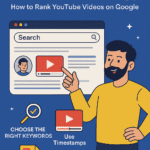Hypehyperion’s 2024 Guide to Facebook Ads After iOS 14+ Updates
With Apple’s iOS 14+ privacy updates continuing to reshape the digital advertising landscape, businesses reliant on Facebook advertising have had to navigate significant changes. These updates introduced App Tracking Transparency (ATT), requiring apps to ask users for permission before tracking their activity across other apps and websites. As a result, the ability to track and target users has become more complex, impacting data collection, audience insights, and overall ad performance.
In this guide, Hypehyperion outlines the implications of the iOS 14+ updates on Facebook advertising and offers practical strategies to help businesses in 2024 mitigate their impact and continue running successful ad campaigns. For companies, especially those doing Facebook advertising in LA, understanding and adapting to these changes is crucial to maintaining a competitive edge.

The Impact of iOS 14+ Privacy Updates on Facebook Ads
The privacy policy changes that came with iOS 14+ have had a far-reaching impact on how advertisers gather data and measure the effectiveness of their Facebook ad campaigns. This shift primarily affects data tracking and user targeting, leading to limitations that small businesses and marketers must navigate.
Key Challenges Brought by iOS 14+ Updates
- Limited Data Collection
With the new privacy features, many users opt out of being tracked. This means that the rich data Facebook once relied on for creating detailed audience profiles is no longer as easily accessible. Without access to cross-app user behavior, it has become more difficult to personalize ads and accurately measure their performance. - Inaccurate Reporting
Due to reduced tracking, Facebook’s ability to report on the actions users take after clicking an ad has been impaired. Advertisers have experienced discrepancies in conversion metrics and a drop in reported results, making it harder to assess the true effectiveness of their campaigns. - Restricted Audience Targeting
Targeting specific audience segments has become more challenging because lookalike audiences and retargeting efforts rely heavily on data that is now harder to collect. Without accurate tracking, businesses struggle to effectively reach users who are most likely to convert.
Hypehyperion’s Strategies for Overcoming iOS 14+ Challenges
While the iOS 14+ updates present challenges, they also offer an opportunity to rethink and refine Facebook advertising strategies. Hypehyperion works with businesses to develop creative solutions that mitigate the effects of these changes, ensuring campaigns remain effective despite the new limitations.
1. Prioritizing First-Party Data
One of the most significant shifts in digital marketing post-iOS 14+ is the move towards first-party data. Rather than relying on data from third-party apps and websites, Hypehyperion encourages businesses to collect information directly from their customers through owned platforms, such as websites, email lists, and customer management systems.
By investing in CRM integration and building robust email lists, businesses can leverage this first-party data for more personalized and targeted ads. The insights from users who engage directly with your brand are invaluable and help fill the gaps left by reduced third-party tracking.
- Strong Example: For a business in Los Angeles, using localized content and email campaigns to gather customer data can create a rich source of first-party data for highly targeted Facebook ads.
2. Adopting Facebook’s Aggregated Event Measurement
Facebook introduced Aggregated Event Measurement (AEM) as a solution to help businesses continue measuring web events despite the iOS updates. AEM allows businesses to track up to eight conversion events on their domain, though the data is aggregated and less granular than before.
Hypehyperion advises businesses to prioritize the most critical conversion events—such as purchases, leads, or sign-ups—within Facebook’s ad manager. By focusing on these high-value actions, companies can still measure their most important outcomes, albeit with more limited data.
- H3 Example: Prioritize Key Conversion Events
For businesses running Facebook advertising in LA, tracking events like “Add to Cart” or “Purchase” ensures that they are still gathering insights into the most critical parts of their sales funnel.
3. Enhancing Retargeting with Custom Audiences
While retargeting has become more challenging due to reduced tracking, there are still ways to optimize retargeting campaigns. Hypehyperion encourages businesses to focus on creating custom audiences using first-party data, such as website visitors and customer lists, for more effective retargeting.
By building retargeting campaigns around users who have already engaged with the business, such as those who visited a landing page or interacted with an ad, businesses can maintain relevance and keep driving conversions.
- Strong Example: A beauty brand based in Los Angeles can use custom audiences from their email list to run retargeting campaigns, ensuring that they continue engaging with warm leads without relying on third-party tracking data.
4. Leveraging Broad Audience Targeting
The reduced granularity in audience targeting means that businesses need to rely more on broader targeting options. Hypehyperion recommends that businesses experiment with broad audience targeting, allowing Facebook’s algorithm to optimize ad delivery based on broader parameters rather than precise interests.
This approach takes advantage of Facebook’s advanced machine learning capabilities to find people who are likely to engage with your brand, even without the granular tracking data that was once available.
5. Creative Optimization for Stronger Engagement
Without the precise targeting that advertisers used to rely on, creative content becomes even more crucial in capturing attention and driving engagement. Hypehyperion helps businesses optimize their ad creatives by focusing on storytelling, visual appeal, and messaging that resonates with broader audiences.
Creative testing and optimization, including A/B testing different headlines, visuals, and CTAs, are essential for ensuring that ads perform well in a post-iOS 14+ landscape. Eye-catching visuals, engaging copy, and clear value propositions help maximize engagement with more general audience targeting.
6. Exploring Other Advertising Platforms
While Facebook Ads remain a cornerstone of digital advertising, businesses should also consider diversifying their ad spend across other platforms. Channels like Google Ads, TikTok, and even email marketing provide alternatives that don’t rely as heavily on cross-app tracking.
Diversifying your advertising strategy can help mitigate the risks posed by iOS 14+ while reaching different audience segments that may not be as affected by these changes.
- Strong Example: A restaurant in Los Angeles could complement its Facebook advertising efforts with local SEO and Google Ads to drive foot traffic and online orders.
Adapting to the Evolving Digital Advertising Landscape
The iOS 14+ privacy updates have undoubtedly changed the digital advertising landscape, but they also present an opportunity for businesses to evolve and adapt. By focusing on first-party data, leveraging Aggregated Event Measurement, and refining creative and retargeting strategies, businesses can continue to thrive with Facebook advertising despite the limitations.
At Hypehyperion, we understand the unique challenges posed by these changes and work closely with businesses to ensure their advertising strategies remain effective. For businesses engaged in Facebook advertising in LA, navigating the iOS 14+ updates with a data-driven and creative approach is essential to staying competitive in 2024.
Key Takeaways: Maximizing Facebook Advertising in a Privacy-First World
- Prioritize first-party data collection for better targeting and personalization.
- Utilize Facebook’s Aggregated Event Measurement to track critical conversion events.
- Focus on custom audiences and retargeting based on first-party data.
- Experiment with broad audience targeting to leverage Facebook’s algorithm.
- Optimize ad creatives for maximum engagement with more generalized audiences.
- Consider diversifying ad spend across other platforms to reach different user segments.
Despite the challenges of the iOS 14+ updates, with a well-structured approach, businesses can continue to thrive on Facebook, driving conversions, engagement, and growth in 2024.





